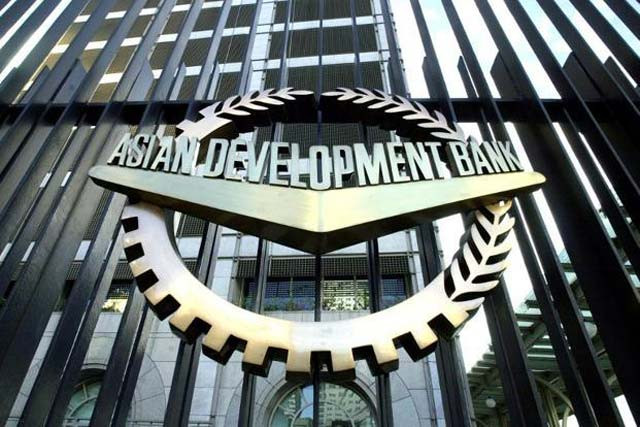Global trade finance gap stands at $1.5tr in 2016: ADB
Report highlights impact on growth and jobs, Asia’s share 40% of the total gap

PHOTO: AFP
Developing Asia’s share of the trade finance gap was 40% of the global total, the brief added. In its fifth annual study, 2017 Trade Finance Gaps, Growth, and Jobs Survey, ADB quantifies market gaps for trade finance and explores their impact on growth and jobs through a survey of over 515 banks and 1,336 firms from 103 countries.
While the global trade finance gap stabilised in 2016 compared to the 2015 record high of $1.6 trillion, it still translated into missed growth opportunities and job creation.
$3.4 billion ADB-funded projects mired in delays
“A sizeable trade finance gap is a drag on trade, growth, and job creation,” said Steven Beck, Head of Trade Finance at ADB. “We hope the results of the survey will encourage private and public sectors to ramp up collaborative efforts to improve businesses’ access to trade finance. Our Trade Finance Program (TFP) is here to assist and address these market gaps.”
Micro, small, and medium-sized enterprises (MSMEs) face the biggest difficulties in accessing trade finance, representing 74% of the total rejections last year, compared to just 57% in 2015. This high rejection rate means foregone trade, which is a drag on the overall economic growth.
The ADB study suggests that a 10% increase in trade finance globally could boost employment by 1%. Findings in the study revealed that one of the biggest reasons financial institutions are reluctant to provide trade finance to small businesses is rooted in the cost and complexity of anti-financial crimes due diligence and the perception of low returns on financial support from smaller firms (reported by 29% of banks).
Survey respondents believe that fintech and digitisation can be a solution to a lack of MSME finance, although awareness and usage of this technology has to be improved. And while fintech is reducing the cost of delivering finance to companies, there is no evidence it is reducing market gaps.
ADB to help revamp drug control
“More than reducing cost, fintech needs to deliver an enhanced capability for financial institutions to conduct due diligence on MSMEs before it can play a role in reducing gaps,” said Beck.
Published in The Express Tribune, September 6th, 2017.
Like Business on Facebook, follow @TribuneBiz on Twitter to stay informed and join in the conversation.



















COMMENTS
Comments are moderated and generally will be posted if they are on-topic and not abusive.
For more information, please see our Comments FAQ